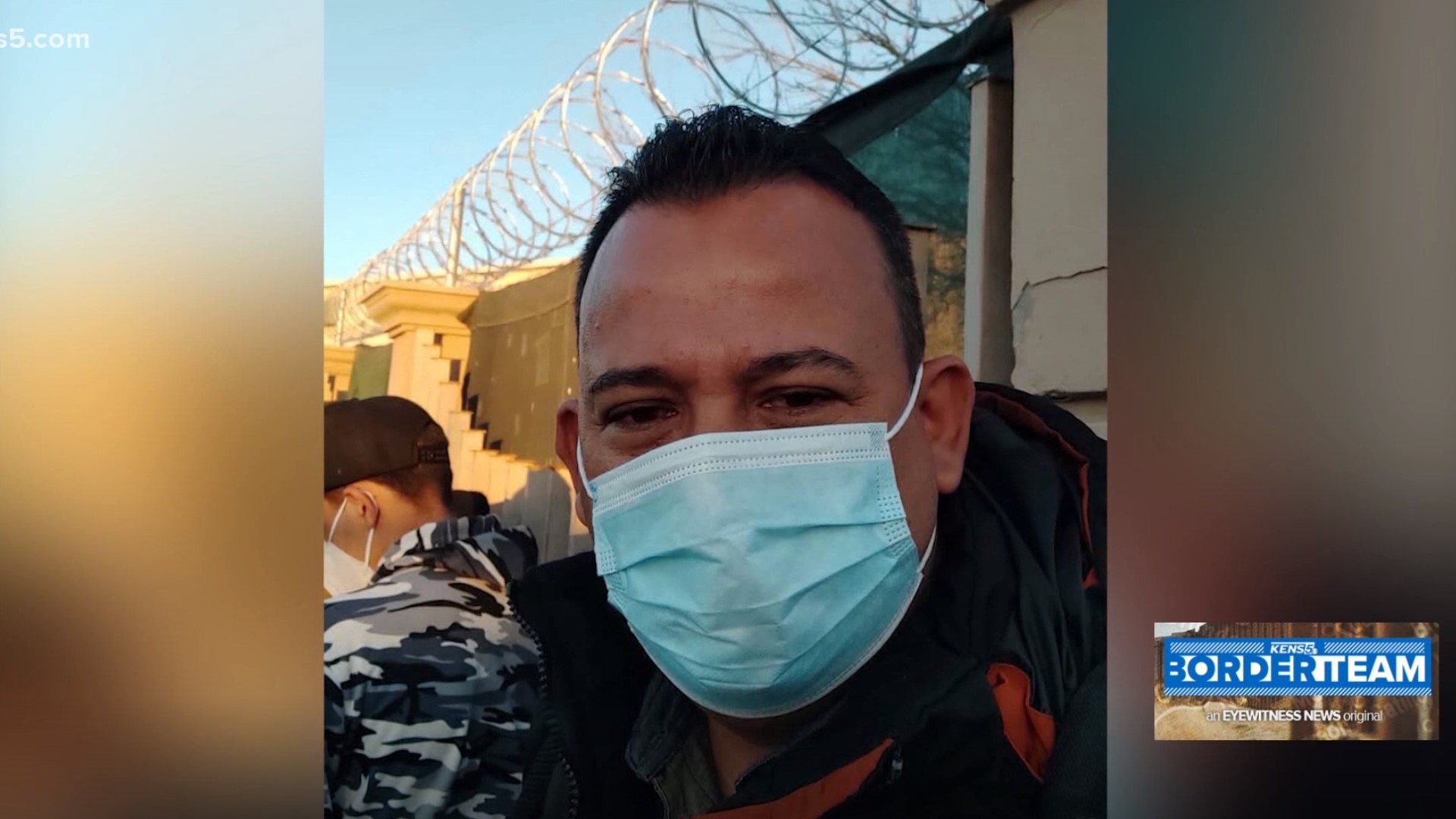TEXAS, USA — A big part of kids making art is the joy parents get when receiving it. If they’re lucky, it’s followed by a hug.
Gabriel has a 9 and a 7-year-old. They draw for him all the time, at their home in Venezuela.
“I talk to them almost every day,” Gabriel told KENS 5. “Every day they show me their homework, what they did during the day. They do drawings for me. On special days like Father’s Day, they do cards and they put them away.”
Gabriel’s kids have to put their art away, hoping they can someday give it to their dad in person.
He hasn’t seen them in more than 2 years. Since he, as his lawyer puts it, was chased out of his home country. Gabriel told us his family was not safe back in Venezuela, so KENS 5 is using an alias and not his real name in this story. We are also not showing his children or naming them.
“It took me a long time to make that decision [to leave] and above all because I have to small children. It’s not an easy decision,” Gabriel told KENS 5. “I miss Venezuela before the dictatorship, a Venezuela with freedoms.”
Gabriel is one of tens of thousands of people who came to the U.S. border and were placed in the Migrant Protection Protocol, a Trump administration’s policy known as MPP. Forcing asylum seekers to wait for their U.S. court date in Mexico.
“My client is a political refugee,” said Ellen Krakow, Gabriel’s pro bono attorney. “He simply wants to be able to survive; he wants his children to survive, he wants to be able to remain here legally with his family who is here legally, and live his life and contribute to society.”
While waiting for his court date in America, Gabriel lived in Ciudad Juarez, across the border from El Paso.
“It’s a very dangerous city,” Gabriel said. “There are no good security measures. You hear a lot in a news about kidnappings including organ and human trafficking. Apart from that, the business and trafficking of prohibited substances.”
“For my client, he was lucky,” Krakow said. “He had skills and he was able to find work and through work he was able to afford rent and in a small apartment. So, he was able to safeguard himself while he was there, but the terrible thing the anguishing thing for him, and it was terrible to watch is was not knowing what how long did he have to stay in Mexico.”
Gabriel told KENS 5, he had to survive for his kids. The journey, he said, changed him as a person.
“Material things aren't’ as important as before,” he said. “The wish to love life, to conserve my life to offer my kids the best in life.”
“I dream about my kids every day,” he added. “I’m always thinking about them and I worry about what could be happening over there with the situation in my country these days.”
Gabriel is one of the lucky ones. MPP, COVID-related immigration court shut down, months and months of waiting, paid off this year. An immigration judge granted Gabriel asylum.
“It means that about five years from now, he'll be able to apply for citizenship through the naturalization process,” Krakow said.
It also means that Gabriel can eventually be reunited with his kids, having applied to bring his children to the U.S.
It will take time, like anything immigration, but the day of getting all the pictures and all the hugs is coming.
“The excitement will be enormous,” he said with a huge smile, “I don’t know, maybe I’ll faint.”
President Joe Biden ended MPP. But the fight over the Trump-era policy continues.
A court ordered the government to re-start the program. Human rights advocates say it’s an inhumane policy that puts people at risk. Many Republicans have said the program worked under Trump. The re-start of the program partially rests with Mexico that would have to agree to let asylum seekers stay in the country while they wait for their U.S. court date.

